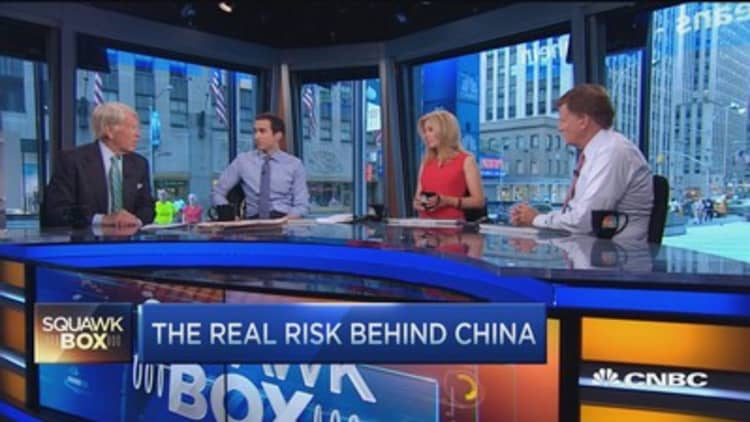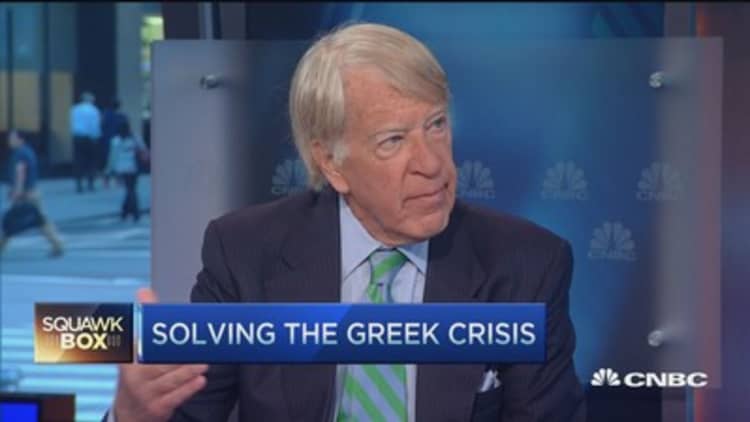
China's recent stock market crash is unlikely to significantly impact its economy, but the government response sends a troubling message to foreign investors, Evercore Partners founder Roger Altman said Thursday.
Chinese stocks recently plummeted 30 percent after running up more than 150 percent in about a year. In response, the government imposed a series of restrictions to stem the fall, including a ban on new initial public offerings and a measure preventing large stakeholders from selling their shares.
"When Xi Jinping came to power, there were a series of hints that market-based capitalism would be allowed to move forward under his leadership. At the first real threat, they've fallen over themselves to impose government control," Altman told CNBC's "Squawk Box."
Xi Jinping was named general secretary of the Communist Party, China's highest office, in November 2012.
"This is actually the first real blemish on Xi Jinping and his overall regime, and I think it's a actually a big deal in that regard, so not what the Chinese leadership wanted, not a confidence builder for China, not a boon in terms of investment in China and certain other things like that require external confidence," Altman said.
Read MoreChina's wealth plunge claims billionaires
The response has undermined the idea that China is run by group of smart technocrats, Altman said. "This hasn't played itself all the way out yet, but it's a bad moment for the Chinese leadership and for the whole idea of China," he said.
Altman said he doesn't expect the crash will bleed over into China's overall economy, noting that 15 percent of household assets are invested in the stock market and 1.5 percent of assets represent margin loans

On Greece, Altman said Athens had to accept new austerity measures, but creditors should also take a haircut to finally end the crisis.
"What I think is unfortunate really about this whole thing is that the right way to solve this would be austerity—round three of austerity so to speak on the Greek side—but debt relief on the creditors' side," he said.
"It's evident. The IMF has been very clear in the last three days especially about this not being ultimately solvable without debt relief."
Read MoreGreece approves tough austerity: What next?
Altman acknowledged that the Greeks went way past the point of living beyond their means, and said the current outcome is better than the alternative—Greece's exit from the 19-member euro zone.
The Greek parliament voted early Thursday to accept a cash-for-reforms deal, which will unlock another 86 billion euros ($94 billion) of bailout funds should Greece's European counterparts also approve the plan.
Altman said he believed the deal would eventually be approved, but added that it looks "rickety all around."
Responding to hedge fund manager Richard Perry's projection that Greece's bonds would eventually trade at par, Altman said a recovery will take 10 to 15 years.


